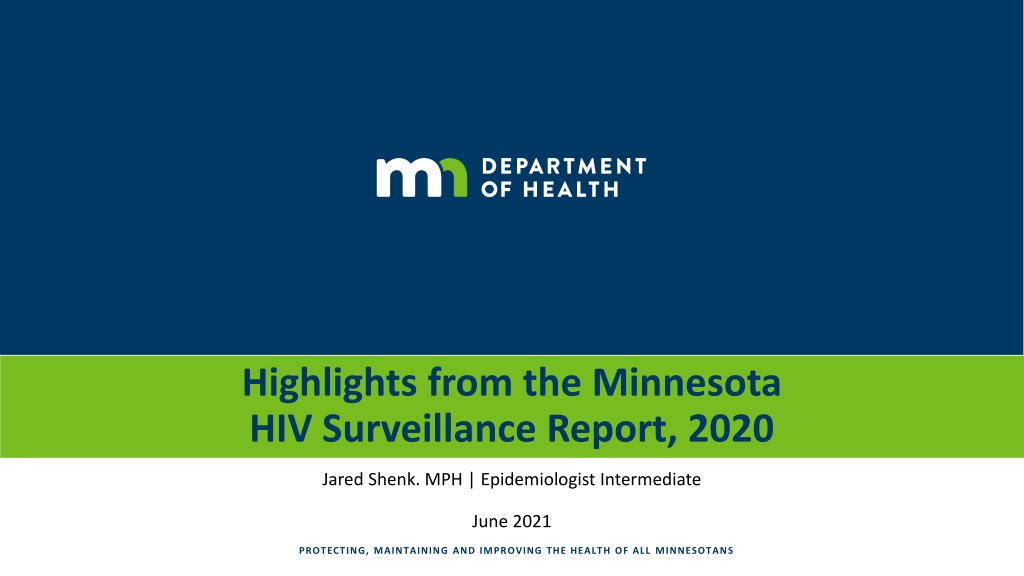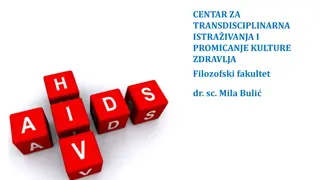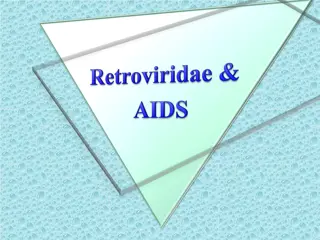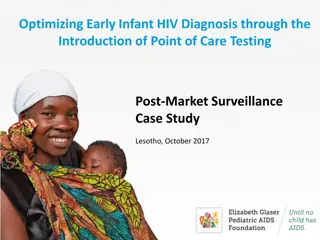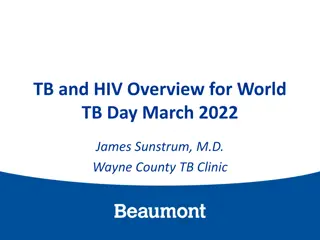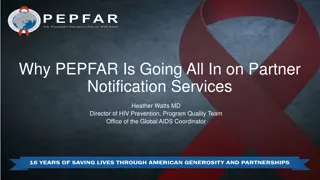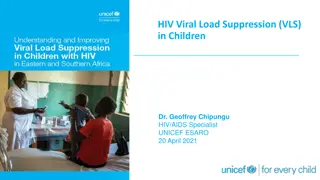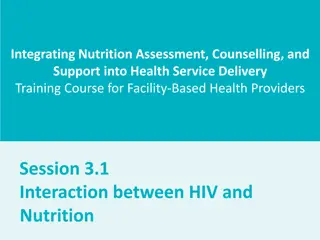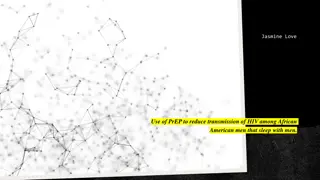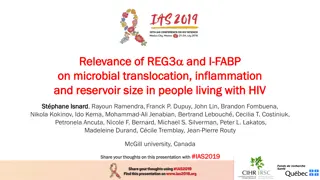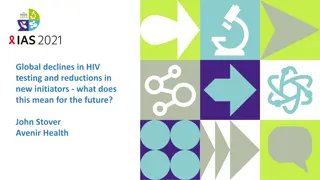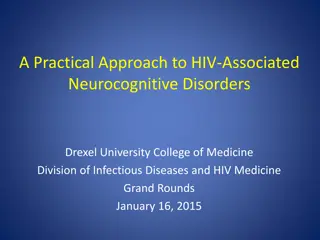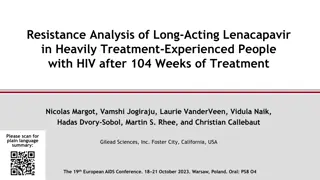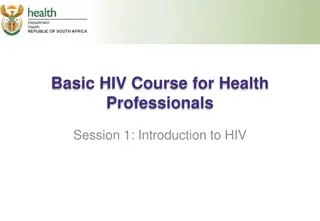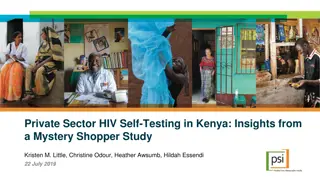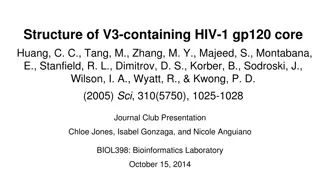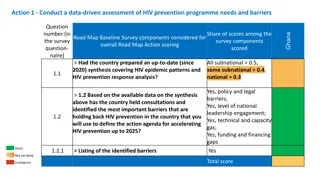Insights from Minnesota HIV Surveillance
The Minnesota HIV Surveillance Report for 2020 provides key data on new HIV diagnoses, cases by year, county of residence at diagnosis, race/ethnicity trends, and more. Access the annual data and gain valuable insights into HIV trends in Minnesota.
Uploaded on Feb 25, 2025 | 0 Views
Download Presentation

Please find below an Image/Link to download the presentation.
The content on the website is provided AS IS for your information and personal use only. It may not be sold, licensed, or shared on other websites without obtaining consent from the author.If you encounter any issues during the download, it is possible that the publisher has removed the file from their server.
You are allowed to download the files provided on this website for personal or commercial use, subject to the condition that they are used lawfully. All files are the property of their respective owners.
The content on the website is provided AS IS for your information and personal use only. It may not be sold, licensed, or shared on other websites without obtaining consent from the author.
E N D
Presentation Transcript
Highlights from the Minnesota HIV Surveillance Report, 2020 Jared Shenk. MPH | Epidemiologist Intermediate June 2021 PROTECTING, MAINTAINING AND IMPROVING THE HEALTH OF ALL MINNESOTANS
Land Acknowledgement Every community owes its existence and vitality to generations from around the world who contributed their hopes, dreams, and energy to making the history that led to this moment. Some were brought here against their will, some were drawn to leave their distant homes in hope of a better life, and some have lived on this land for more generations than can be counted. Truth and acknowledgment are critical to building mutual respect and connection across all barriers of heritage and difference. We begin this effort to acknowledge what has been buried by honoring the truth. We are standing on the ancestral lands of the Dakota people. We want to acknowledge the Dakota, the Ojibwe, the Ho Chunk, and the other nations of people who also called this place home. We pay respects to their elders past and present. Please take a moment to consider the treaties made by the Tribal nations that entitle non-Native people to live and work on traditional Native lands. Consider the many legacies of violence, displacement, migration, and settlement that bring us together here today. Please join us in uncovering such truths at any and all public events.* *This is the acknowledgment given in the USDAC Honor Native Land Guide edited to reflect this space by Shannon Geshick, MTAG, Executive Director Minnesota Indian Affairs Council 2
Where to access 2020 HIV annual data www.health.state.mn.us/diseases/hiv/stats/index.html 3
New HIV Disease Diagnoses* HIV/AIDS Cases by Year, 2010-2020 5
HIV Diagnoses* in Year 2020 and General Population in Minnesota by Race/Ethnicity 7
Number of Cases and Rates (per 100,000 people) of HIV Diagnoses* by Race/Ethnicity Minnesota, 2020 8
HIV Diagnoses* Diagnosed in Year 2020 by Sex Assigned at Birth and Race/Ethnicity 9
Average Age at HIV Diagnosis* by Sex Assigned at Birth, 2009-2020 10
Number of Cases and Rates (per 100,000 people) of Adults and Adolescents* Diagnosed with HIV/AIDS by Sex Assigned at Birth and Risk in Minnesota, 2020 11
Number of Cases of Adults and Adolescents* Diagnosed with HIV/AIDS by Gender Identity in Minnesota, 2020 12
HIV Diagnoses* Among Foreign-Born People in Minnesota by Year and Region of Birth 2009 - 2020 13
Time of Progression to AIDS for HIV Diagnoses in Minnesota* 2009 - 2020 14
Births to Pregnant People Living with HIV and Number of Perinatal Acquired HIV Infections* by Year of Birth, 2009- 2020 15
Estimated Number of people Living with HIV/AIDS in Minnesota As of December 31, 2020 9,422* people are assumed alive and living in Minnesota with HIV/AIDS. This includes: 5,247 (56%) living with HIV infection (non-AIDS) 4,175 (44%) living with AIDS This number includes 2,540 people who were first reported with HIV or AIDS elsewhere and subsequently moved to Minnesota This number excludes 1,629 people who were first reported with HIV or AIDS in Minnesota and subsequently moved out of state *This number includes people with Minnesota reported as their current state of residence, regardless of residence at time of diagnosis. It also includes state prisoners and refugees arriving through the HIV+ Refugee Resettlement Program, as well as HIV+ refugees/immigrants arriving through other programs. 17
Foreign Born People Living with HIV/AIDS in Minnesota* by Region of Birth, 2011-2020 18
HIV Outbreaks in Hennepin/Ramsey Counties & Duluth Region People at high-risk in the current outbreaks: Duluth area Outbreak Declared 3/2021 Cases (N=15)* People who use injection drugs (PWID) or share needles/works Hennepin/Ramsey Counties Outbreak People experiencing homelessness or unstable housing Declared 2/2020 People who inject drugs People who exchange sex for income or other items they need Cases (N=71)* * Data counts as of 6/2/21 20
Molecular Tools for Outbreak Monitoring To address data privacy concerns: Molecular data is from the HIV virus, and is not a person s genetic material Cannot infer causal directionality of infection HIV virus sequences securely housed at the health department 21
Thank you. MDH HIV Epidemiologists Cheryl.Barber@state.mn.us Jared.Shenk@state.mn.us Trent.Daugherty@state.mn.us Jennifer.Mark@state.mn.us WWW.HEALTH.MN.GOV
